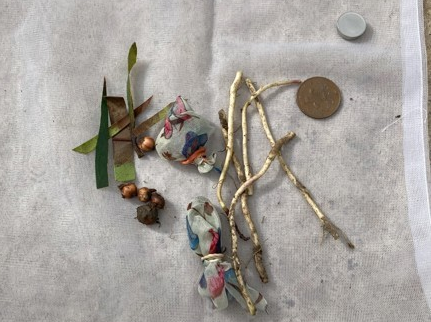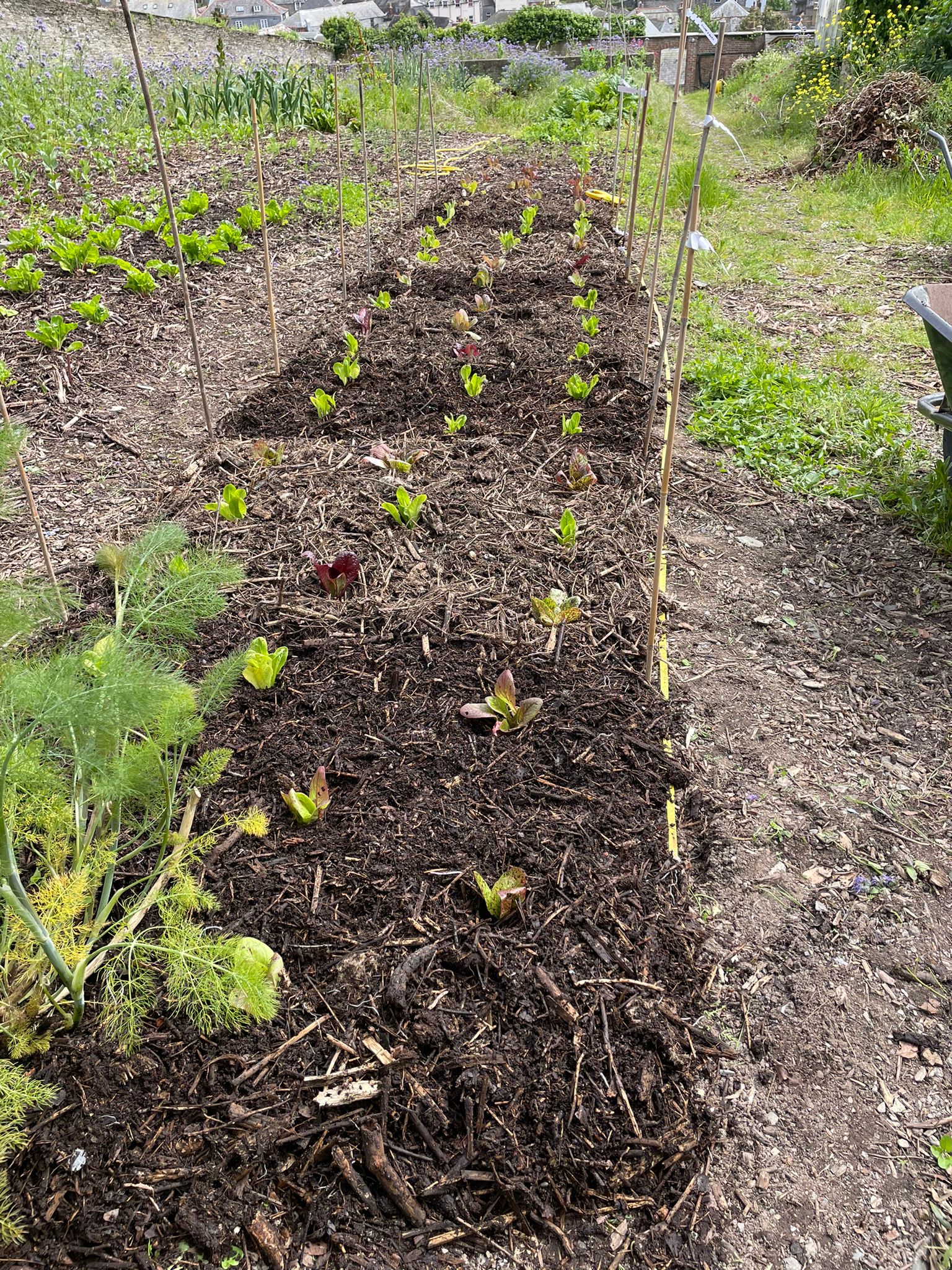It is widely accepted that compost can help capture carbon, retain nutrients, and reduce the dependence on bought-in fertiliser by improving the soil structure and biology. But how can you get the best out of your compost? And what benefits can you expect?
In this Innovative Farmers field lab, part of the Farm Net Zero project, five growers in Cornwall will explore how compost quality and therefore yield, can be influenced by a wide range of management variables.
The group are monitoring:
• The impacts of turning
• Adding biochar, bokashi, and bespoke microbial concoctions.
• The longevity of weed seeds, weed propagules and pathogens in compost.

Trials began in 2022, so it’s still early days, and the results aren’t in yet for the first two parts of the trial. However, the first results for the weed and pathogen trials have come in, and the group are producing some exciting results…
The weed and pathogen trial
With plant diseases increasingly prevalent, growers are concerned about spreading diseases further by composting disease-infected material. The same goes for pernicious weeds: nobody wants
to be spreading dock and bindweed around their holding through the compost.
One member of the group decided that their main priority for the trial was to find out whether they could safely compost weed seeds and diseased material, without worrying about spreading it
around their holding. They filled bait bags with weed seeds and diseased materials and buried them in the compost for 12 weeks to see what happened.
The bait bags contained: an iButton (to monitor temperature & humidity), a penny (to allow detection with a metal detector), weeds to kill (Oxalis & bindweed), seeds to kill: (dock & parsnip -
a proxy for dock due to similar seed size but more reliable germination) and 5 diseased leaf strips.

Contents of the compost bait bag
They tested the temperature of the heaps regularly throughout
the process. The trial lasted for 140 days, and fitted with the standard management of compost in a holding bay. Compost was turned with a loader at weekly intervals but turning involved careful moving of compost in such a way that material was both within the compost heap and on the edge over the full trial. Mean temperatures peaked in the fourth week at 68°C despite weekly turning, and were averaging 41°C at the end of the trial. Control samples were kept in a fridge for the same amount of time. All data
was fully replicated.

Bait bags
The trial results
The results were fantastic: Composting killed the plant pathogen but the control samples remained viable. Further, weed propagules were turned to dust (bindweed and oxalis) but the controls are very viable. Early results indicate that the seed controls are germinating, but failing when entering the composting process.
Other results
One area that unexpectedly emerged from this trial was the impact of mulching on salad crops under heat stress. Crops that were mulched tended to have a lower number of bolted plants. The infiltration data supports the fact that any watering or rain that
occurred percolated more quickly in the mulched plots irrespective of whether this was a heavy or a light mulch. And importantly, with the first use of mulch infiltration benefits were detected irrespective of the type of mulch whether with plant material was mixed with biochar, bokashi, bokashi and biochar!
No impact on worm number has been identified yet, and aggregate stability assessments are on-going. We are planning to assess biological activity of the soils after compost application – an about turn from the original proposal where soil assessments were going to just be nutrient-focused. The other triallists will be carrying out the same trials on their compost heaps next year.

The field lab is the first of three to run as part of the five year Lottery Funded Farm Net Zero Project, a major project from the farming community in Cornwall to explore the contribution that agriculture can make to achieve Net Zero. The researcher is Dr. Hannah Jones of Trifolium Services, and the coordinator is Jerry Alford at the Soil Association.